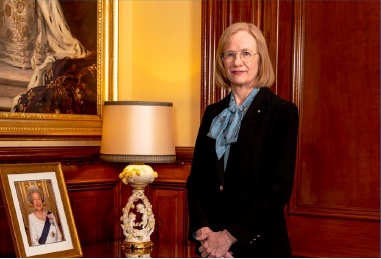Hearing Aids: Their use and limitations

 What are Hearing Aids?
What are Hearing Aids?
Hearing aids are amplifying devices programmed to match a person’s specific hearing loss and help them hear better.
The earliest known hearing aids were developed in the 17th century and were simple devices in the form of ear trumpets.
Electronic devices did not supersede these acoustic aids until the early 20th century.
The digital technology available today means that hearing aids are more than just amplifiers. They can be programmed to meet individual losses and needs and can provide several other options and features such as Bluetooth connection to mobile phones, tinnitus programs and more.
More and more manufacturers are starting to build extra features into their devices not related to hearing loss. They are touting these devices as “health wearables”.

Limitations of Hearing Aids
Many people will think that if you suffer from hearing loss, a hearing aid will fix the loss. Just like glasses do for those with vision impairment.
While correctly prescribed glasses can restore vision to 20/20, this isn’t true for hearing aids.
 How can hearing aids help me?
How can hearing aids help me?
Any problems with the external and middle ear will usually result in sound not getting through to the inner ear (a blockage), where it can be transmitted to the brain for processing. This will cause what’s called a conductive loss. A conductive loss can usually be overcome by more volume or power to get the sound through. This is where hearing aids can help and, once the sound is amplified, we expect good results in most cases. This is dependent on the level of conductive loss and the ability of the hearing aid.
No solution for inner ear problems
When the problem is in the inner ear, things become more complicated as there is often damage to some structures that process sound. Hearing aids cannot repair this damage.
Other devices can attempt to address this damage, such as cochlear implants and bone conduction devices.
Interference can be an issue
Hearing aids are amplifiers, and you must remember that they amplify all sounds around the wearer, not just speech or audio from TVs or stereos. This means that any background noise or interference is also amplified, which can cause additional issues with hearing – especially in noisy environments.
It takes time to get used to hearing aids
If we understand that hearing aids can only attempt to approximate a person’s hearing — and that there are issues and limitations with that approximation — we must also understand that it will take a while for new wearers to get used to hearing aids.
The hearing aid may amplify and provide sounds the wearer hasn’t heard for a while. Sounds can also initially be unpleasantly loud until the ear adjusts. This new experience can cause stress and tension for the device’s wearer until they get used to it.
Other issues that can take a while to get used to including the wearer’s voice sounding very loud and things like chewing sounds being amplified depending on the device and how well it has been fitted.
Do hearing aids cure hearing loss?
No, hearing aids do not cure hearing loss just like glasses don’t cure vision impairment. They only amplify sounds to overcome the reduction in hearing levels experienced by the wearer.
For hearing aids to help, there must be some residual hearing function available that can pick up the amplified sound.
In some cases, even when sound is amplified, the ear and the brain cannot process it clearly, and no matter how good the technology is, we are still left with a problem.
Despite the issues hearing aids still have value. Many people get excellent assistance from them, but we should all be aware of the limitations and the benefits.
The best course of action for anyone with hearing loss is to get tested by an audiologist and find out what devices can assist them.
The audiologist may recommend hearing aids or assistive listening devices (or a combination of both).
Expectations of Hearing Aids
Despite technological advances over the past few years, it is important to remember that a hearing aid is not getting inside the ear and fixing any damage. As has been shown, this means there will be limits to what hearing aids can do but using all the devices and strategies available should result in good management of hearing loss.
If you know someone with hearing aids, understand that they do not have their hearing restored to 100%.
These people rely on hearing aids to help them but still depend on you to communicate as clearly and directly as possible. Understand they still must work hard every day to listen, engage, and participate with the people around them.
Hearing aids are not a magic bullet. Be patient and practice communication skills and tactics to improve your interaction with people dealing with hearing loss.
For more advice or help with hearing loss, contact Better Hearing Australia today. We have courses and support groups that can help you on your hearing loss journey.





